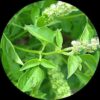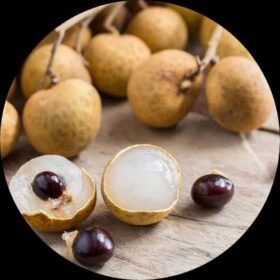- Empty cart.
- Continue Shopping
Sesame Plant
₹165.00Current price is: ₹165.00. Original price was: ₹220.00.
Genus : Sesamum
The Sesame Plant is a versatile and nutritious addition to any garden. Known for its edible seeds, this plant produces flavorful sesame seeds that can be used in various culinary creations. Sesame seeds are rich in healthy fats, protein, and essential nutrients, making them a valuable ingredient in cooking and baking. Additionally, the Sesame Plant has medicinal properties and is used in traditional herbal remedies. Grow your own sesame plant and enjoy the benefits of this remarkable plant in your kitchen and home.
Add to cart
Sesame is a flowering plant that is grown for its seeds, which are used in a variety of culinary and medicinal applications. It is also commonly known as benne, benniseed, and til.
The sesame plant grows to a height of 3-6 feet and has oblong leaves that are about 2-5 inches long. The plant produces small, tubular flowers that are white or pink in color and grow in clusters. These flowers give way to small, flat seed pods that contain the sesame seeds.
Sesame seeds are small, oval-shaped, and come in a range of colors, including white, black, and brown. They are highly nutritious and are a good source of protein, healthy fats, and minerals like calcium, iron, and magnesium.
In culinary applications, sesame seeds are commonly used to make tahini (a paste used in Middle Eastern cuisine), as a topping for breads and other baked goods, or as an ingredient in sauces and marinades. They are also often used in Asian cuisines, where they are toasted and added to dishes for a nutty flavor and crunch.
Sesame is a hardy plant that can be grown in a variety of climates and soil types. It prefers full sun and well-draining soil, and can be propagated from seed or cuttings. The plant is relatively low maintenance, but does require regular watering and fertilization to ensure healthy growth and seed production.
In addition to its culinary uses, sesame has also been used for centuries in traditional medicine. It is believed to have a range of health benefits, including reducing inflammation, improving heart health, and supporting healthy bones and joints.
Overall, sesame is a versatile plant with a range of culinary and medicinal uses. Its seeds are highly nutritious and can be used in a variety of dishes, and the plant itself is relatively easy to grow and care for.
Add a review
Currently, we are not accepting new reviews













Reviews
There are no reviews yet